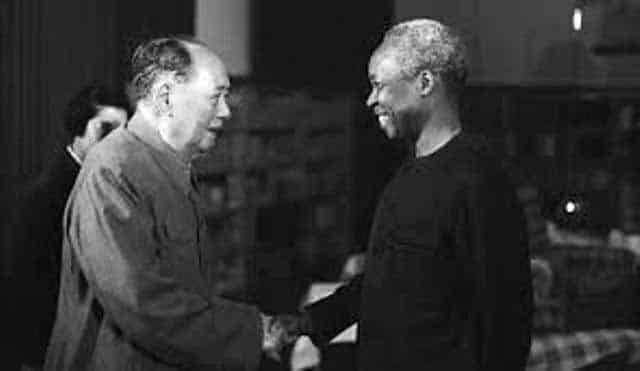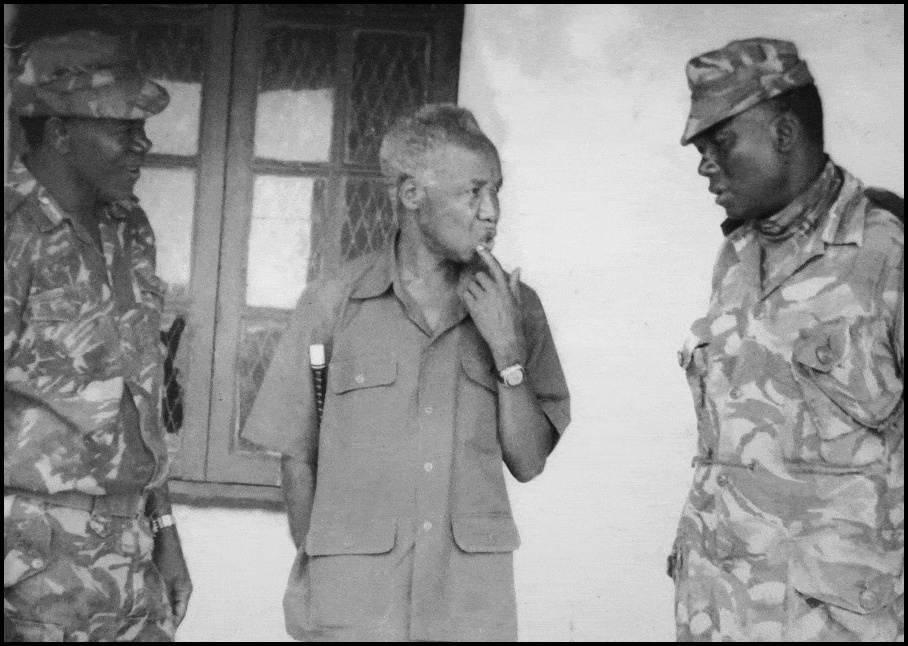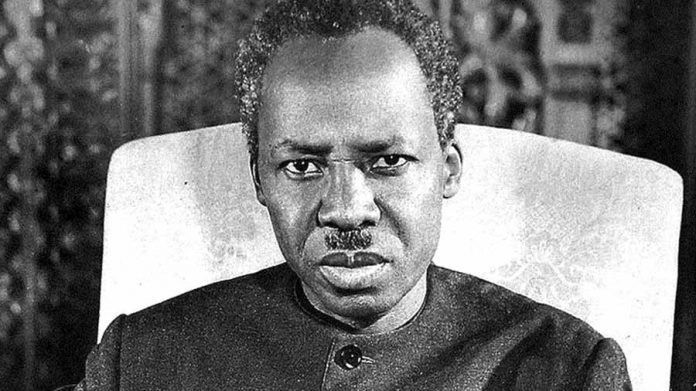Julius Nyerere Leadership Style – Vision, Challenges, Success

The main function in terms of foreign relations during Julius Nyerere‘s administration heavily involved in persuading other countries worldwide, especially the major Western countries, that Tanzania’s attitude towards foreign affairs was neutral; but given the high level of involvement of Eastern countries on the island of Unguja, and Nyerere’s insistence that, in order to improve the balance established in the era of colonialism, Tanzania was forced to change its direction further to Eastern countries in terms of aid, efforts that failed to work in the end. The attitude towards the values discussed by President Nyerere on Britain’s involvement in Rhodesia (now Zimbabwe) and the weapons’ supply from Britain to South Africa additionally increased the strained relations the two countries already had, and eventually Tanzania suspended its diplomatic ties with the United Kingdom between year 1965 all the way to 1968. As a result, the stoppage of aid from the United Kingdom provided opportunities for Eastern countries, especially China that mainly kicked off their aid support in year 1970 related to a free interest-free loan to build a railway linking connecting Zambia with Dar es Salaam.
Political Freedom
Although Nyerere highly valued the generous aid Tanzania was getting, he had great ambitions to persuade his countrymen to understand the importance of being independent and relying on themselves as a nation. Freedom of politics, emphasized by Nyerere, will always be meaningless as long as Tanzania would continue to be used a slave by investors from foreign countries. Nyerere’s perspective was reflected in the enactment of the Arusha Declaration on the 5th of February, year 1967, that set out a socialist (Ujamaa) policy with a strong socialist and independent focus. The country’s resources, Nyerere said, belonged to the citizens and they were faithfully reserved for for future generations. Leaders were forced to be at the forefront in rejecting the methods of capitalist systems and had to receive a single salary only. Banks were nationalized, although compensation continued to be distributed to holders of shares; similarly situation was on the most vital commercial industrial companies. However, agriculture played a huge role of being the gate to development, from this perspective increased productivity was the only thing that was expected to end poverty. To add greater emphasis to his own ideologies, communities were relocated to cooperative villages that enabled and motivated them to join their efforts in terms of work for their own benefit.
Criticism of Julius Nyerere Leadership Style and Its Consequences
Julius Kambarage Nyerere’s words and opinions in general did not bring the awareness he was hoping for. Many people opposed his vision regarding unity, and even many of his followers did not wholeheartedly accept his moral stance. The cooperative villages program was unsuccessful, and actually it di put more pressure on the already struggling economy. The industry specific to sisal, which was among the nationalized ones, was mishandled and died in mid-1970s due to poor management.
Criticism during Nyerere’s administration was not limited to his people alone – but also affected the world’s richest countries. In year 1968, Nyerere questioned the OAU (Organization of African Unity) rules using Biafra policies whose origins is Nigeria, additionally in year 1995 Nyerere rebuked the OAU again because it planned launch its general assembly in the country of Uganda, whose President Idi Amin had a long reputation of abusing his people in many ways. The deterioration of Tanzania’s relations with Kenya and Uganda played a big role in the failing of the Community of East Africa in year 1977, an organization that was launched 10 years prior with the aim of promoting development of economies of the three participating countries.
Tanzania-Uganda Relations

In beginning of 1970s, Uganda and Tanzania had strained relations which stemmed from Julius Nyerere leadership style that seemed to favor Milton Obote, Uganda’s former president who was overthrown by Nduli Idi Amin in year 1971 – situation that led to a border dispute between Tanzania and Uganda. Even though there was once an agreement attempt to end the political differences the two countries had, a brand new war (known as the Kagera War) erupted again in year 1978 because Idi Amin’s army invaded Tanzania in the northwestern side and took control of land in Kagera River northern side; as a result Tanzanian military forces responded to the attack, won and recaptured the region under the protection of the Tanzanian military. The fighting went on for numerous months after until April, 1979, whereby the Tanzania military forces invaded the capital of Uganda, Kampala; Amin’s reign was completely dismantled after he ran out of Kampala just before it was taken over by Tanzanian forces. However, the continued presence of the Tanzania military for numerous years in Uganda following the overthrow of Amin further extended the deterioration of relations with other Ugandan leaders and made Tanzania a big suspect in Kenya. But in the rest of Africa, Nyerere managed to take on leadership roles, especially in the negotiating talks that brought about Zimbabwe’s independence and in forming an African Union that continued to make attempts in challenging South Africa’s economic rule.
Controversy in Zanzibar Islands
Numerous events that occurred in Zanzibar led to many to be concerned about the Julius Nyerere leadership style and stability of his grip on the mainland. The arrests and arbitrary penalties for anyone suspected of opposing the government led to complaints about the joint republic’s constitution which was was supposed to restrict the mainland administration in matters of the island especially in matters of justice and law when applicable. Also, Zanzibar’s failure to run elections exacerbated the slow pace of development on Tanzania’s mainland. Karume got killed by some army members in In April 1972. Aboud Jumbe, became his successor, he was a senior member of the Karume government, and, although his policies and Karume’s were not entirely different, he seemed to be gradually moving in line with the practices of mainland Tanzania. The merger of ASP and TANU to become the Revolutionary Party, popularly known as Chama cha Mapinduzi (CCM) in the beginning of 1977 signaled a future of hope but unfortunately what followed were demands by Zanzibaries who wanted more independence of their internal affairs. This situation was briefly observed just after Ali Hassan Mwinyi was in place after Jumbe in year 1984 to become the United Republic’s president after Nyerere’s resignation in the month of November in 1985.
There is so much to know about Julius Nyerere leadership style, if you would like to find more articles about the United Republic of Tanzania, click here!

































